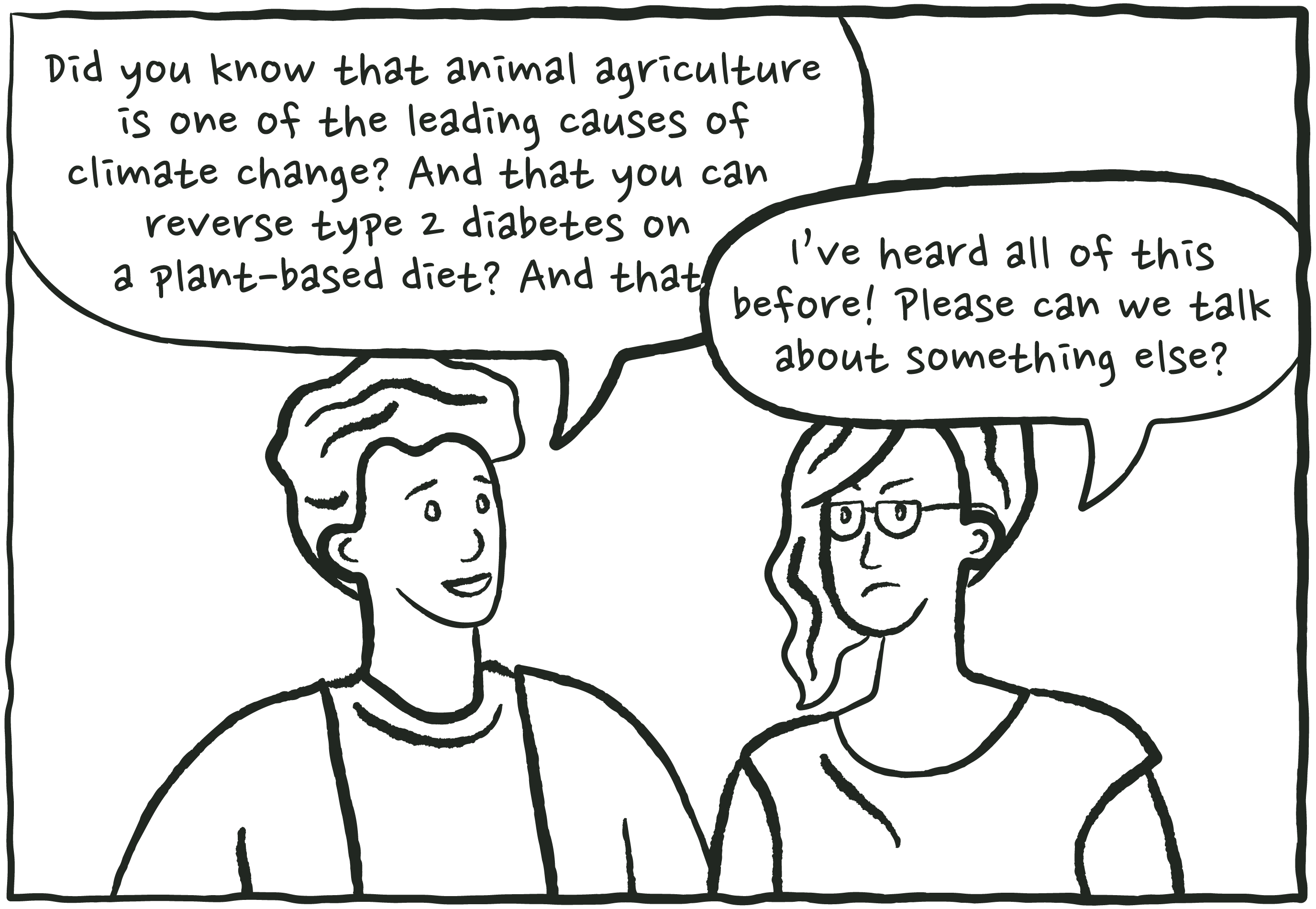I keep talking with people about veganism, but I don’t think it’s doing any good
You spend hours talking with people about veganism—using carefully considered arguments—yet the people you are speaking with don’t seem to be changing their behavior. Sound familiar?

We can put an immense amount of pressure on ourselves to be constantly talking about veganism, and it can be frustrating and dispiriting when people don’t seem to get it.
The good news is that there are lots of things we can do to increase the chances that people will be open to hearing about veganism. In this resource, we’ll share just a few tools. To learn more about having impactful conversations about veganism, check out our course on effective vegan advocacy.

Plant seeds
It’s important to remember that when we’re talking with people about veganism, the facts don’t always sell the ideology. We might assume that when people learn the truth about animal agriculture, they’ll immediately stop eating animals. But asking someone to stop eating animals is not simply asking for a change of behavior. It’s also asking for a shift of consciousness—a change in the way people think about their relationship with animals, including their right to consume them. It’s also asking someone to become a member of an ideological minority group, to no longer be part of the norm.
Rather than anticipating an immediate change, make it the goal of your advocacy to plant seeds, as the author Colleen Patrick-Goudreau suggests. Simply share what you know to be true, don’t overinform, and when the person is ready, those seeds will grow.

Don’t overinform
Many vegans have a tendency to overinform. And this is totally understandable. Because we care so much, we don’t want there to be even the slightest chance that people will leave a conversation with us and ever eat animals again.
So we try to cover all bases: “Yeah, there’s this great egg replacer for baking. Oh, and type 2 diabetes? I’ve got that covered. Let me show you where to buy a vegan winter coat!”
But people can take in only a small amount of information at a time. When they’re confronted with too much, they can start to feel overwhelmed and to shut down. Rather than telling them everything there is to know about veganism, we need to simply help them see that it’s worth starting to explore the possibility of becoming vegan. If they’re responsive when you offer a small amount of information, you can point them toward websites and social media accounts where they can learn more.
Let yourself take a break from being “the vegan”
While it’s important that we do everything we can to make our conversations about veganism as impactful as possible, it’s also essential to give yourself permission not to always be talking about veganism. You’re not responsible for turning everyone around you vegan. If you feel like you’re tired, you’re not in the mood to discuss veganism, or you just want to be you and not “the vegan,” let yourself take a break and talk about something different. This way, you’re helping to ensure you’ll have the energy and motivation to keep advocating veganism in the long run.
